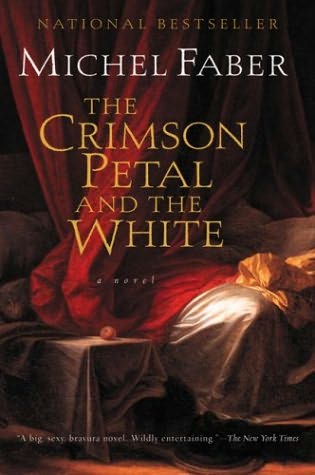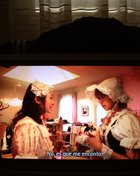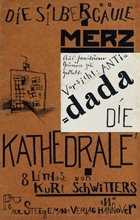 I usually keep my book reviews separate from my song reviews. I use Librarything for the former and Letters Have No Arms for the latter. But I figured it's wort breaking this rule from time to time - perhaps only in favour of 5-star books (ok, I rated it 4.5 actually, not 5, but you get the point). If even one person will be inspired to go out and buy it, I'll be happy. And now my review, copy-pasted from LT:
I usually keep my book reviews separate from my song reviews. I use Librarything for the former and Letters Have No Arms for the latter. But I figured it's wort breaking this rule from time to time - perhaps only in favour of 5-star books (ok, I rated it 4.5 actually, not 5, but you get the point). If even one person will be inspired to go out and buy it, I'll be happy. And now my review, copy-pasted from LT:"The Crimson Petal and the White is a book that knows precisely where it stands - and where it stands is at the utmost edge between Victorian and postmodern. Its themes, its conflicts, its setting, its people, and the motivation behind their actions and thoughts are utterly Victorian. All the concerns of the era, from the Woman Question to the technological advancements and the loss of the "natural", from the "evil of prostitution" to the inhuman working conditions, from the religious dilemmas of the time to the conflict between "tradition" and "modernity" - everything and anything that might concern the Victorian man or woman is addressed here. Issues of poverty, hunger, dirt, and criminality are dealt with so perceptively and touchingly that it would flummox even Dickens. The hypocrisy of the upper classes and their preoccupation with nothing more than balls, parties and "social calls" are ridiculed with a wit and sharpness worthy of Austen.
But if you glance at the novel's form and writing, the daring pen of Michel Faber makes it clear that The Crimson Petal and the White, despite the title's allusion to a famous Victorian poem, does not belong to the 19th century. Faber, the writer, often steps into the story - to great comical effect - to offer the readers advice or to stir the story into another direction. He makes his authorial presence known and, in true postmodern fashion and in the spirit of Lemony Snicket, often addresses the reader directly: "So there you have it: the thoughts (somewhat pruned of repetition) of William Rackam as he sits on his bench in St. James's Park. If you are bored beyond endurance, I can offer only my promise that there will be fucking in the very near future, not to mention madness, abduction, and violent death." It seems that he uses every device and trick known to writers to keep the reader interested in the story, but makes the whole thing seem so effortless - he never lost me for one second. Most importantly, the distance between mr. Faber's era and the era he is describing makes it easier for him to see the past in a clearer light, and allows him to express his observations and his critique openly. "This is the novel that Dickens might have written had he been allowed to speak freely", The Guardian says, and they're definitely onto something here. It was a comfort to see a writer that finally has the courage to address that most mystifying feature of the Victorians - one that jumps out at me whenever I pick up mr. Dickens - the fact that sex is an unmentionable topic with them. Of course, the conflict between the Victorians' behaviour and their "morals" is transparent: while prostitution is soaring and people are certainly no less interested in sex than today, they insist on acting as though sex is simply inexistent, far way from their thoughts and lives. The effects of this sexual repression on society's part are made clear enough in the novel: people battling with their consciences, trying to reconcile the idea of sex as something that is clearly natural and desirable in their hearts of hearts with the idea of sex as filthy, degrading and evil.
I could go on and on but I think I've described the book well enough to stop here. The reason why I didn't award it a full five stars is a certain death that I thought was completely unnecessary - it seemed to me that it was just an easy way to dispose of a character that served a purpose no longer. Other than that, this is a wonderful book. Sugar - our prostitute heroine - along with William Rackam, Henry Rackam, Emmeline Fox, Agnes, Sophie, Caroline, Colonel Leek, Clara, Ms. Castaway will draw you in and never let you go. Great cast, great story, great writing, great book."
But if you glance at the novel's form and writing, the daring pen of Michel Faber makes it clear that The Crimson Petal and the White, despite the title's allusion to a famous Victorian poem, does not belong to the 19th century. Faber, the writer, often steps into the story - to great comical effect - to offer the readers advice or to stir the story into another direction. He makes his authorial presence known and, in true postmodern fashion and in the spirit of Lemony Snicket, often addresses the reader directly: "So there you have it: the thoughts (somewhat pruned of repetition) of William Rackam as he sits on his bench in St. James's Park. If you are bored beyond endurance, I can offer only my promise that there will be fucking in the very near future, not to mention madness, abduction, and violent death." It seems that he uses every device and trick known to writers to keep the reader interested in the story, but makes the whole thing seem so effortless - he never lost me for one second. Most importantly, the distance between mr. Faber's era and the era he is describing makes it easier for him to see the past in a clearer light, and allows him to express his observations and his critique openly. "This is the novel that Dickens might have written had he been allowed to speak freely", The Guardian says, and they're definitely onto something here. It was a comfort to see a writer that finally has the courage to address that most mystifying feature of the Victorians - one that jumps out at me whenever I pick up mr. Dickens - the fact that sex is an unmentionable topic with them. Of course, the conflict between the Victorians' behaviour and their "morals" is transparent: while prostitution is soaring and people are certainly no less interested in sex than today, they insist on acting as though sex is simply inexistent, far way from their thoughts and lives. The effects of this sexual repression on society's part are made clear enough in the novel: people battling with their consciences, trying to reconcile the idea of sex as something that is clearly natural and desirable in their hearts of hearts with the idea of sex as filthy, degrading and evil.
I could go on and on but I think I've described the book well enough to stop here. The reason why I didn't award it a full five stars is a certain death that I thought was completely unnecessary - it seemed to me that it was just an easy way to dispose of a character that served a purpose no longer. Other than that, this is a wonderful book. Sugar - our prostitute heroine - along with William Rackam, Henry Rackam, Emmeline Fox, Agnes, Sophie, Caroline, Colonel Leek, Clara, Ms. Castaway will draw you in and never let you go. Great cast, great story, great writing, great book."
 Boat Beam hail from Spain( but sing in English) and have just released their
Boat Beam hail from Spain( but sing in English) and have just released their Boam Beam - The Rain Pauly












































.jpg)










0 comments:
Post a Comment